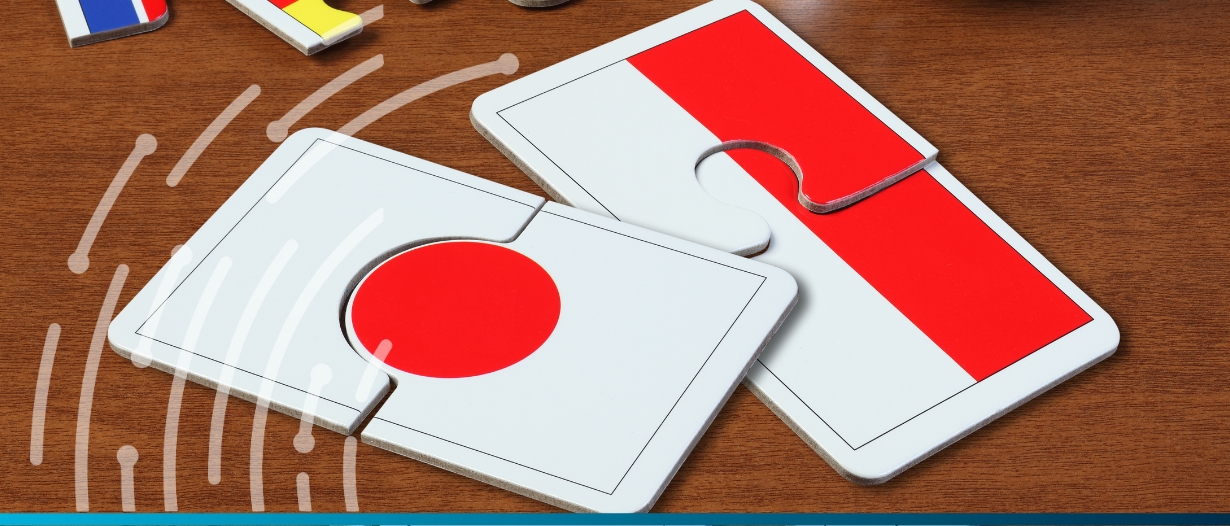Estimated reading time: 3 minutes
Japanese Prime Minister Shigeru Ishiba announced on Saturday 11 January that Japan would be providing Indonesia with military equipment, showing the country’s commitment to regional collaboration in the face of shifting geopolitical alignments.
This comes after it was made public that Indonesia would join BRICS on 6 January, becoming the 10th member of the group of emerging economies.
The move is set to cement the bloc’s influence on the global stage and establish it as a major player distinct from the Western G7 countries that have historically dominated the global economy. Japan’s promise to provide high-speed patrol boats to support Indonesia’s maritime security, announced after a meeting between the countries’ respective prime ministers in Jakarta last week, could be an effort to reestablish its own influence in the region and show the West’s continuing commitment to Indonesia’s development.
Indonesia will join Brazil, Russia, India, China, South Africa, and other developing nations in the bloc, distancing it from established Western powers. “BRICS is an important platform for Indonesia to strengthen South-South cooperation and ensure that the voices and aspirations of Global South countries are well-represented in global decision-making processes,” the Indonesian Foreign Ministry said in a statement.
The group was created in 2009 by Russia after a 2001 paper by a Goldman Sachs economist used the acronym “BRIC” (South Africa would join in 2010) to describe a group of emerging economies that would soon go on to challenge the G7 economic giants. The bloc was created as a counterweight to the perceived excessive influence of Western powers.
Four new countries joined the bloc in 2024: Egypt, Ethiopia, Iran, and the United Arab Emirates (UAE). Indonesia’s bid to be the bloc’s 10th member was approved at the 2023 BRICS summit and set in motion in 2024.
Indonesia’s foreign minister expressed “gratitude to Russia [who held the bloc’s rotating presidency in 2024] for its support and leadership in facilitating Indonesia’s joining”.
Indonesia’s strong economic performance and, until now, relatively neutral position amid polarising powers on the world stage has made it a contentious target, with both major powers attempting to attract it to align on their side. Indonesia is the world’s fourth most populous country and 15th largest economy, with a young and growing population and a fast-developing economy. The country’s growth in the past 30 years has seen it join the ranks of the world’s fastest-rising economies, with an enviable 5% growth rate that has stayed resilient despite global shocks.
Indonesia’s export industry has also been growing in recent years, with strong relationships with China, the US, and East Asia; the country is the world’s largest exporter of palm oil, and its natural resources and growing services and manufacturing industries could see it become an even more important player in global trade in the future. With Indonesia’s accession to BRICS, the group will now comprise 47% of the world’s population and 5 of its top 20 economies.
As the world becomes more polarised between the West and Russia and China, some have speculated its ascension to BRICS is intended to bring Indonesia closer to the latter camp and away from Western influences. Argentina was asked to join BRICS in 2023, but refused in favour of a closer collaboration with the US and Europe.
Indonesia may be seeking closer alignment with Russia and China and a conscious distance from the Western world. The country is confident in its manufacturing capabilities, as evidenced by its decision to ban iPhones because of insufficient local sourcing of materials, which was kept despite Apple’s promises to invest over $1 billion in the country, shows Indonesia’s confidence in its own manufacturing sector and a distancing from Western economic giants.
In its acceptance of military aid from Japan, however, Indonesia may be seeking to toe the line between the West and its newfound BRICS allies to improve its own economic outlook, as many emerging economies are attempting to do.





























